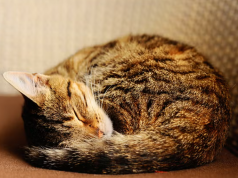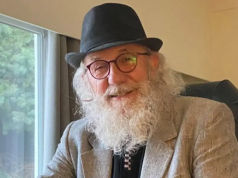Gareth Edwards Q&A: The creator of The Creator
By Fred Topel

The Creator is about a world after the A.I. apocalypse. American A.I. nuked Los Angeles so the military is now hunting A.I. anywhere, even though Asia has been using it peacefully. John David Washington plays an undercover agent who discovers a child A.I. (Madeleine Yuna Voyles).

Edwards previewed some scenes from the film for audiences earlier this month. The filmmaker spoke about making the film in a Q&A moderated by Scott Mantz. The film is in theaters everywhere Friday, Sept. 29.
Q: What is it about sci fi that you love?
GE: Are there other genres? I’ve heard about this. There’s films without robots in them and stuff. I don’t see it as I do science fiction because I think the best science fiction is a blend of genres. My first film I see as a love story meets science fiction. I guess my second film, which was Godzilla, is like a disaster movie science fiction movie. Star Wars is probably a war movie meets science fiction.

Q: How and when did you get the inspiration for The Creator?
GE: There were numerous things that happened. I guess the most obvious one was we had just finished Rogue One. My girlfriend, her family lives in Iowa. We drove across America to go visit. As we were driving through the midwest and there’s all these farmlands with tall grass, I was just looking out the window. I had my headphones on and I wasn’t trying to think of an idea for a film. But I was getting a little inspired and I just saw this factory in the middle of this tall grass. I remember it having a Japanese logo on it. I was thinking oh, I wonder what they’re making in there. Then I just started thinking because my tendency is oh, probably robots. Then I was thinking imagine you were a robot built in a factory and then suddenly for the first time ever, you got to step outside into the field and look around and see the sky. I was like I wonder what that would be like. I thought that felt like a really good moment in a movie but I didn’t know what that movie was. I throw it away, whatever. Then something just kind of tapped me on the shoulder and went oh, it could be this. These ideas started coming and as we carried on a journey, by the time we pulled up at the house, I kind of had the whole movie mapped out in my head which never happens normally. So I was like that’s good sign. Maybe this might be my next thing, I don’t know.

Q: Did it become very timely to have a movie about the dangers of A.I. come out in 2023?
GE: The joke would be that when you write a film, especially a science fiction film obviously, I try to avoid putting a date. I didn’t want to write a date for the movie because even Kubrick gets it wrong [in 2001]. So it was like don’t write a date, and then at some point you have to. So I did some math and I picked 2070. Now I feel like an idiot because I should have gone for 2023. Everything that’s unfolded in the last few months or year is kind of scary weird. Then we first pitched the movie to the studio, this idea of war with AI, everyone wants to know the backstory. Hang on, why would we be at war with AI? Well, they’ve been bad because it went wrong. But why would you ban AI? It’s going to be great. It was all these ideas you had to set up that maybe humanity would reject this thing and not be that cool about it. The way it’s played out, the setup of our movie is pretty much the last few months. It’s kind of strange. We got very lucky. Obviously, if it was coming out after November and we’re all killed by the roboapocalypse it wouldn’t be that good, but thankfully it’s September 29.
Q: What made you cast John David Washington?
GE: JD, John David, it was during the pandemic we were casting the film so it was really hard to meet anybody. Fortunately, he lived in L.A. and I just heard through his agents, hey, he’ll meet you any time you want, go for a meal. So I did. He walks in and it is the pandemic so he’s got his mask, but it was a Star Wars mask. I initially thought oh no, he’s doing this because of Rogue One. And he sat down and he admitted he’s a massive Star Wars fan. He’s like, “I’ve been wearing this mask every single day for a year. I thought about not wearing it to this meeting but it felt false so I thought it would be a good ice breaker.” We hit it off straight away.

Q: How did you find Madeleine Yuna Voyles?
GE: We basically did an open casting call all around the world. We got hundreds of videos. Then I went to meet about 10 kids. The first one was Madeleine who plays Alphie. She came in, she did the scene. We were all nearly in tears at the end and I thought to myself this is weird and phenomenal. Maybe the mom was just brilliant at prepping her to get really upset just before she came in and there was some little trick going on. We chatted for a bit and we did some other scenes and right at the end, I was like, “Oh, can we just try one more thing?” I just wanted to see if it was repeatable. I explained the different scene and we just improvised it. It was even more heartbreaking. I don’t know what we would have done if we hadn’t found the right kid.

Q: What are your cinematic influences for The Creator?
GE: I guess the quick answer to that is I’ve had this thing, it’s a superstition since my first film. I put up posters in the edit suite of movies that had inspired the film I was doing. So around the edit suite on this one, we had, there are some really obvious ones you’d probably predict but ones that you might not would be there’s a film called Baraka which is, I think, one of the greatest movies ever made. Lone Wolf and Cub which is a Japanese manga series and a whole bunch of films. The really obvious ones like Apocalypse Now and Blade Runner. In terms of the dynamic, maybe a little bit of Rain Man. It’s kind of a journey with someone normal and someone who’s a little bit special, different, however you want to see it. And Paper Moon, those sort of dynamics.
Q: Who are the sci-fi directors you were inspired by?
GE: I think it’s really obvious, probably. There’s the obvious people: Spielberg, James Cameron, Ridley Scott. What we were trying to do, I’m not saying we got anywhere close to achieving it but the goal of the movie was to try and go back to that style and type of film that we grew up loving. Give that vibe and aesthetic again. The film was shot in 1970s anamorphic lenses and things like this. I hate writing. It’s like doing homework. The worst thing in the world is having to write a screenplay. The only way I can really bring myself to do it is I lock myself somewhere nice. I find a nice hotel and I say I’m not allowed to leave until I finish. So I stay there like a month or something. I went to Thailand. I didn’t realize I was getting inspired for the movie. I just picked this nice resort. Whilst I was there, a filmmaker friend was in Vietnam and said, “Come over. We’ll just do a little trip.” So I went around Vietnam and you can’t go around that country and not think of all the imagery from films like Apocalypse Now and Platoon. But I was writing this science-fiction film so everything I was looking at was robots and in my mind was spaceships and things. So I see Buddhist monks going to temples, then I picture a robot Buddhist monk. The whole time going what is this movie? There was something so appealing about it, this mix of Blade Runner meets Apocalypse Now is the fastest way to say it to people. Coppola and Ridley Scott.
Q: What are the highest and best values of humanity you hope this movie demonstrates?
GE: I hope empathy for others. That’s a strong value that I think is very important. When this film began, I obviously didn’t know AI was going to do what it ended up doing this last year. In the fairy tale of this story, AI was like the other, people who are different to us that we kind of want to get rid of or naturally have conflicts with. The second you made them AI, all kinds of f fascinating things start to happen as you write that script where you start to think are they real? How would you know? What if you didn’t like what they’re doing? Could you turn them off? What if they didn’t want to be turned off? All this stuff started to play out which became as strong as the premise. That’s what I’m most proud of in the film that we hung onto that. That’s probably why I like science fiction. I think if you sit down and start to type and try and work out a film and go, “I want to make a film about this that’s got this social commentary to it,” it’s going to be a rubbish film. You get attracted to an idea, there’s something very primal about it that pulls you. There’s something that needs to be said about this subject matter, it’s about halfway through making a film or writing a film where you start to realize what that thing is. It’s like a child that tells you what they want to be when they grow up. So you learn what it is and then you try to help it. Science fiction I think does it the best.







